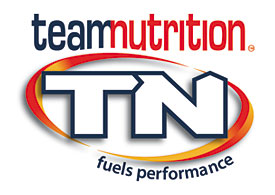Drink to Your Health
WINTER SUNSHINE or not, we will be packing our rucksacks and heading off for a day’s walking, but I wonder how many of us will pack less drinks in the winter believing that it’s colder and we drink less?
Any form of exercise will necessitate extra fluid intake and the funny thing about winter is that we apply extra layers of technical clothing to maintain our core body’s warmth. Therefore when walking in winter do we need to consider drinking as much as we do in summer?
 We all need at least three and a half litres a day to maintain fluid balance in a home or office environment, as we lose around three litres of water every day just sitting around (half a litre in sweating, one litre in breathing and one and a half litres in urine).
We all need at least three and a half litres a day to maintain fluid balance in a home or office environment, as we lose around three litres of water every day just sitting around (half a litre in sweating, one litre in breathing and one and a half litres in urine).
The answer to how much more fluid we need can be in the clues your body gives you. The best way to check if you are drinking enough is by the colour of your urine. Looking at the chart, any colour below number 3 means you are de-hydrated and need to drink more. Headaches, stomach cramps and digestive problems are also signs that your body needs more fluids. But there is more, each of these colour gradients represents a 2% loss of hydration which translates to a about 10% loss of physical and mental performance. So being dehydrated can impair your judgement, enjoyment and your recovery next day.
The better hydrated you are the easier the exercise will feel, this is because your hydration levels regulate the body’s core temperature, which in turn regulates your heart beat which affects blood flow to your skin (for cooling) and muscles to provide them with oxygen and essential nutrients.
HYDRATION STRATEGY
You can satisfy your fluid requirements with water, tea, coffee, soft drinks and sports drinks; each has a role to play.
Hot tea and coffee with sweaters can give you a boost, provide core body heat if you are chilled and a mental reward. However water should remain the main fluid to keep you hydrated and you should be looking to drink 150ml – 200ml every 10 – 15 minutes during all exercise.
In warmer and more demanding conditions you may not be able to keep pace with your fluid and energy needs. In these conditions sports drinks are vital as they deliver essential electrolytes, a measured carbohydrate boost to your blood sugar levels and glycogen for the muscles. Both The Isotonic and the quicker acting Hypotonic drinks will hydrate you more effectively than water as your intestine absorbs these mineral/carbohydrate based fluids more quickly than water.
Again your body will provide some hints. If you suffer from cramp or you feel bloated when you drink water these are indicators that your body needs more electrolytes.
So a little hydration every 10-15 minutes can add up to a lot more healthy enjoyment.
Robin Higgens
Team Nutrition
